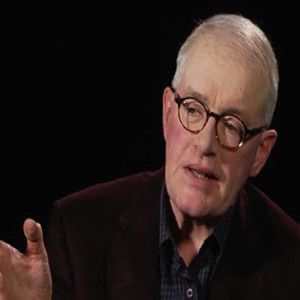
Stories, science and secrets from the world’s brightest thought-leaders. Behavioral Grooves is the podcast that satisfies your curiosity of why we do what we do. Explanations of human behavior that will improve your relationships, your wellbeing, and your organization by helping you find your groove.
Episodes

Sunday Jun 21, 2020
Grooving: Where Will You Live if You WFH?
Sunday Jun 21, 2020
Sunday Jun 21, 2020
We saw an article in the Wall Street Journal titled “When Workers Can Live Anywhere, Many Ask: Why Do I Live Here?” and it got us thinking. Millions of white-collar workers have been displaced from their offices and are being told they are on indefinite work-from-home status. And many of those workers are opting to leave the big cities where the virus has been most aggressive.
In addition to the temporary exodus to more rural settings, some people are leaving big cities to find permanent solace in the countryside.
This got us thinking about how humans are predictably irrational about decisions about their futures. The biases about future happiness go hand in hand with changing where you live.
The article that got us thinking about this was written by Rachel Feintzeig and Ben Eisen. Together, they do a great job of assembling data on the movement during the heart of the crisis and notes that even with a major recession hitting the global economy, many people feel the need to move.
© 2020 Behavioral Grooves
Links
“When Workers Can Live Anywhere, Many Ask: Why Do I Live Here?” from the Wall Street Journal, June 17, 2020: https://www.wsj.com/articles/when-workers-can-live-anywhere-many-ask-why-do-i-live-here-11592386201
“Is It Time to Let Employees Work from Anywhere?” by Prithwiraj (Raj) Choudhury, Barbara Z. Larson and Cirrus Foroughi, August 14, 2019, in HBR: https://hbr.org/2019/08/is-it-time-to-let-employees-work-from-anywhere
Remote Work Statistics: Shifting Norms and Expectations from February 2020: https://www.flexjobs.com/blog/post/remote-work-statistics/#:~:text=Remote%20Work%20Is%20Increasing&text=Over%20the%20last%20five%20years,or%203.4%25%20of%20the%20population.
“U.S. Workers Discovering Affinity for Remote Work,” Gallup Polls, April 3, 2020: https://news.gallup.com/poll/306695/workers-discovering-affinity-remote-work.aspx
Schkade, D. A., & Kahneman, D. (1998). Does Living in California Make People Happy? A Focusing Illusion in Judgments of Life Satisfaction. Psychological Science, 9(5), 340–346. https://doi.org/10.1111/1467-9280.00066
“The evolution of decision and experienced utilities” by Robson and Samuelson, Theoretical Economics, September 2011: https://onlinelibrary.wiley.com/doi/abs/10.3982/TE800
Dan Buettner: On Quality of Life, “Thrive”: https://www.wbur.org/npr/131571885/how-to-thrive-dan-buettner-s-secrets-of-happiness
Dan Gilbert: On Predicting Future Happiness. https://positivepsychology.com/daniel-gilbert-research/#:~:text=Daniel%20Gilbert%20completed%20his%20Ph,emotional%20state%20in%20the%20future.
George Loewenstein, Ted O’Donoghue & Matthew Rabin on Projection Bias: https://www.cmu.edu/dietrich/sds/docs/loewenstein/projectionbias.pdf

Friday Jun 19, 2020
Friday Jun 19, 2020
Elizabeth Gilbert, PhD is the Head of Research at PsychologyCompass, a content platform that uses insights from psychology and neuroscience to teach people how to be happier and more productive. She has a PhD in social psychology from the University of Virginia and a postdoctoral fellowship at the Medical University of South Carolina. And she’s been engaged in the replication of studies that were, on one level or another, considered questionable.
We talked with Elizabeth about her work on Imaginal Exposure, the process of imagining your worst fears to overcome those very concerns and how they might prove relevant in such uncertain times as these. We also discussed human’s native power of adaptability and the tremendous benefits of making lists - again, the payoff during uncertain times is even greater.
Elizabeth’s comments combined her work as a researcher and her role as a mother in the most authentic ways and we thoroughly enjoyed our conversation with her. We hope you will, too.
© 2020 Behavioral Grooves

Sunday Jun 14, 2020
John Bargh: Dante, Coffee and the Unconscious Mind
Sunday Jun 14, 2020
Sunday Jun 14, 2020
John Bargh, PhD is a Professor of Psychology and Management at Yale University. His name may be familiar because of the replication crisis, but there is so much more to John Bargh than a couple of experiments that were challenged during replication. John has authored more than 100 peer-reviewed articles, chapters in over 30 books, and he founded The ACME lab at Yale in order to research the unconscious and implicit influences on social judgment, motivation, and behavior.
Over the years, his research has focused on embodied cognition effects, or how physical experiences (such as washing one’s hands or holding something warm or rough) influence metaphorically related social variables (like how physical warmth leads to feelings of physical warmth, for example).
Recently, he’s been focused on how social goals and political attitudes can be influenced by the satisfaction of underlying physical-level motivations; for example, how immunization against the flu virus influences attitudes towards immigration as ‘invaders’ of one’s ‘cultural body.’
We feel fortunate to have such a wide-ranging and fun conversation with John and we’re pleased to share his insights and humor with our listeners.
If you’ve not subscribed to our Patreon site, please check it out at www.patreon.com/behavioralgrooves.
© 2020 Behavioral Grooves
Links
John Bargh, PhD: https://psychology.yale.edu/people/john-bargh
ACME Lab: https://acmelab.yale.edu/
Bargh & Williams’ Coffee Study: https://science.sciencemag.org/content/sci/suppl/2008/10/23/322.5901.606.DC1/Williams.SOM.pdf
Jeff Simpson, PhD: https://twin-cities.umn.edu/content/faculty-profile-jeffry-simpson
John Bowlby, PhD: https://en.wikipedia.org/wiki/John_Bowlby
Dante Alighieri “The Divine Comedy”: https://en.wikipedia.org/wiki/Divine_Comedy
Priming: https://en.wikipedia.org/wiki/Priming_(psychology)
Richard Nisbett, PhD: https://lsa.umich.edu/psych/people/emeriti-faculty/nisbett.html
Tim Wilson, PhD: https://en.wikipedia.org/wiki/Timothy_Wilson
Gary Latham, PhD: https://www.rotman.utoronto.ca/FacultyAndResearch/Faculty/FacultyBios/Latham
Peter Gollwitzer, PhD: https://as.nyu.edu/psychology/people/faculty.peter-m-gollwitzer.html
Howard Gardner, PhD “The Mind’s New Science”: https://www.amazon.com/Minds-New-Science-Cognitive-Revolution/dp/0465046355
“The Effect of Primed Goals on Employee Performance: Implications for Human Resource Management,” Shantz & Latham: https://www-2.rotman.utoronto.ca/facbios/file/37%20-%20Shantz%20&%20Latham%20HRM%202011.pdf
On Diederik Stapel’s bad data: “The case of Diederik Stapel”: https://www.apa.org/science/about/psa/2011/12/diederik-stapel
Jeff Greenberg, PhD on “Terror Management Theory”: https://www.psychologytoday.com/us/basics/terror-management-theory
Sigmund Freud: https://en.wikipedia.org/wiki/Sigmund_Freud
William James: https://en.wikipedia.org/wiki/William_James
Susan Fiske, PhD: https://psych.princeton.edu/person/susan-fiske
Apocalypse of St. Paul: https://en.wikipedia.org/wiki/Apocalypse_of_Paul
The Zeigarnik Effect: https://docs.google.com/document/d/1XHpBr0VFcaT8wIUpr-9zMIb79dFMgOVFRxIZRybiftI/edit
Feng Shui: https://en.wikipedia.org/wiki/Feng_shui
Chameleon Effect: https://acmelab.yale.edu/sites/default/files/1999_the_chameleon_effect.pdf
Lucien Stryk: https://en.wikipedia.org/wiki/Lucien_Stryk
Adam Grant “Pre-Crastination”: https://www.nytimes.com/2016/01/17/opinion/sunday/why-i-taught-myself-to-procrastinate.html
Kristen Berman on Behavioral Grooves – Episode 149: https://behavioralgrooves.com/uncategorized/covid-19-crisis-kristen-berman-on-remote-work-quaranteams-and-marinades/
Wim Hof: https://en.wikipedia.org/wiki/Wim_Hof
Gary Latham on Behavioral Grooves – Episode 147: https://behavioralgrooves.com/episode/gary-latham-phd-goal-setting-prompts-priming-and-skepticism/
Artist Links
King Louie & Bo$$ Woo “Gumbo Mobsters” (Drill): https://www.youtube.com/watch?v=BA1XYIdz3TA&feature=emb_title
Jimmy Page: https://en.wikipedia.org/wiki/Jimmy_Page
Robert Plant: https://en.wikipedia.org/wiki/Robert_Plant
Talking Heads “Fear of Music”: https://en.wikipedia.org/wiki/Fear_of_Music
Alan Parsons Project “Sirius (Eye in the Sky)”: https://www.youtube.com/watch?v=OkC_oi0ksuw
YoYo Ma on Bach Cello Suite No. 1 in G Major Prelude: https://www.youtube.com/watch?v=1prweT95Mo0

Sunday Jun 07, 2020
Covid-19 Crisis: Howard Friedman, PhD on The Value of Human Life
Sunday Jun 07, 2020
Sunday Jun 07, 2020
Howard Friedman is a data scientist, health economist, and writer with decades of experience in both the private and public sectors, as well as academia. He is widely known for his work as a statistical modeler and he currently lives in New York City and teaches at Columbia University.
Howard's new book, Ultimate Price: The Value We Place on Life, is about how the monetary values assigned to our lives by governments, medical professionals, and insurers can determine who will survive during times of crisis.
We talked to Howard about different models for the valuation of human life and how the crisis has revealed many opportunities for improvement. The conversation’s content is sobering, but Howard keeps things light, whenever possible. We hope you’ll enjoy listening as much as we did.
© 2020 Behavioral Grooves
Links
Connect with Kurt and Tim:
Kurt Nelson, PhD: @WhatMotivates e-mail: kurt@lanterngroup.com
Tim Houlihan: @THoulihan e-mail: tim@behavioralchemy.com
Lantern Group: http://lanterngroup.com/
BehaviorAlchemy: https://www.behavioralchemy.com/
Behavioral Grooves: https://behavioralgrooves.com/
Weekly Grooves: https://weeklygrooves.podbean.com/
Common Biases & Heuristics: https://docs.google.com/document/d/1XHpBr0VFcaT8wIUpr-9zMIb79dFMgOVFRxIZRybiftI/edit#
Patreon Site for Behavioral Grooves: https://www.patreon.com/behavioralgrooves
General Coronavirus Info:
Daily Newsletter Summarizing data from Johns Hopkins Center for Health Security: http://www.centerforhealthsecurity.org/newsroom/newsletters/e-newsletter-sign-up.html
CDC: https://www.cdc.gov/coronavirus/2019-ncov/index.html
Great videos on the science behind this by Dr. Peter Attia – this is the first in a series: https://www.youtube.com/watch?v=CNVhLyAlfA4
What is herd immunity?: https://www.technologyreview.com/s/615375/what-is-herd-immunity-and-can-it-stop-the-coronavirus/
A list curated by Liam.Delaney@UCD.ie
https://docs.google.com/document/d/11GLhX7hLf64Bxkdpv5hvYHqOjS1imlcMQFjJBJ-9oUM/edit
Coronavirus & Behavioral Science:
Selected Links: The Behavioral Sice of Coronavirus: https://behavioralscientist.org/selected-links-the-behavioral-science-of-the-coronavirus-covid-19/
Why no one is reading your coronavirus email: https://edition.cnn.com/2020/03/13/opinions/coronavirus-emails-effective-messaging-rogers/index.html
Handwashing can stop a virus, so why don’t we do it?: https://behavioralscientist.org/handwashing-can-stop-a-virus-so-why-dont-we-do-it-coronavirus-covid-19/
The behavioral science of handwashing: https://think.ing.com/articles/the-behavioural-science-of-hand-washing/
Ideas 42: The Behavioral Side of COVID-19 here: https://ideas42.org/covid19/
Greater Good: https://twitter.com/GreaterGoodSC
How We Can Cope During This Crisis:
Tip Sheet from HUMU: https://humu.com/remote-nudges/
Resources for learning at home: https://fordhaminstitute.org/national/commentary/resources-learning-home-during-covid-19-school-closures?utm_source=join1440&utm_medium=email&utm_placement=etcetera
General Behavioral Science Links:
Common Biases and Heuristics: https://docs.google.com/document/d/1XHpBr0VFcaT8wIUpr-9zMIb79dFMgOVFRxIZRybiftI/edit#
Jonathan Haidt – 5 Moral Foundations: https://en.wikipedia.org/wiki/Moral_foundations_theory
Annie Duke’s “How To Decide”: https://www.amazon.com/How-Decide-Simple-Making-Choices/dp/0593084608
“16 Ways To Promote Hand Washing With Behavioral Science” article by Aline Holzwarth: https://www.forbes.com/sites/alineholzwarth/2020/03/25/handwashing-with-behavioral-science/#261b4b9f768d
Aline Holzwarth’s Playlist on Spotify: https://open.spotify.com/playlist/0H5fsQRrqslGdBhhx8d4Aw?si=0jra0rU1Qu2vQNtqjbRvZA
Deontological and Consequential Moralities: https://plato.stanford.edu/entries/ethics-deontological/#DeoTheKan
Difference between descriptive and injunctive norms: https://psychology.stackexchange.com/questions/6193/whats-the-difference-between-injunctive-norms-and-descriptive-norms
Emotion Research from FinalMile: http://finalmile.in/research/
Pandemic Playbook from FinalMile: https://www.playbookforpandemic.com/
Irrational Labs Bootcamp: https://irrationallabs.com/learn/
Claire Bidwell Smith “Anxiety: The Missing Stage of Grief”: https://clairebidwellsmith.com/

Friday Jun 05, 2020
Grooving: Protests Sparked by the Death of George Floyd in Minneapolis
Friday Jun 05, 2020
Friday Jun 05, 2020
On May 25, 2020, a white Minneapolis police officer killed George Floyd, an unarmed black man, by holding him down with a knee on his neck for over 8 minutes. This was done while three other officers either helped in holding down Mr. Floyd down or stood by watching.
Mr. Floyd’s death is an unimaginable horror as it was not the result of a split-second or hair-trigger decision, but a callous, calculated effort that lasted more than 8 minutes.
This killing kicked off a week of protests which grew darker as the nights went on. As many as 81 buildings in Minneapolis have been burned, with 25 of them completely destroyed, and 270 businesses have been vandalized since Mr. Floyd’s death.
This hits home for Tim and Kurt. Tim lives only a few miles from the epicenter but has had people racing down his street, as they were deterred from the closed freeways by roadblocks – some of them threatening his neighbors with harm. Kurt lives only blocks away from where some of the protests occurred and could smell the smoke and tear gas in the air, hear the chants of protesters, and see the police and national guard units patrolling up and down his street in the middle of the night as they stood watch to protect the neighborhood. The bank and post office that were burned down is where Kurt did his banking and sent his mail from.
The loss of property in no way compares to the loss of human life – that is, Mr. Floyd’s life – and in no way compares to the hundreds of years of black suppression. These are terrible tragedies on many levels.
We’ve decided to talk about this on this podcast because it is personal for us – we have gone through a range of emotions and we thought that many of you might have been going through the same. There have been similar incidents of outrage and protests in the past – Eric Garner and Michael Brown are just two that come to mind – but this one seems different. Maybe it’s different because we live here and it’s so close…but maybe it’s different because it was the last straw that finally tipped the scales…let’s hope so.
Links
Tally of Buildings Damaged in Minneapolis: https://www.startribune.com/these-minneapolis-st-paul-buildings-are-damaged-looted-after-george-floyd-protests/569930671/
Kareem Abdul Jabar – People Pushed to the Edge: https://www.latimes.com/opinion/story/2020-05-30/dont-understand-the-protests-what-youre-seeing-is-people-pushed-to-the-edge
“Psychological Research Explains Why People Protest” Forbes, May 20, 2020. By Nicole Fisher: https://www.forbes.com/sites/nicolefisher/2020/05/29/the-psychology-of-protests-reveals-why-americans-are-ready-for-action/#334d1f3bbbb6
White guy with AR-15 vs. Black guy with AR-15 video: https://www.facebook.com/KeithKuder/videos/866107570115697

Wednesday Jun 03, 2020
Covid-19 Crisis: Chris Pfeiffer on Tips for Adjusting Sales Comp Plans
Wednesday Jun 03, 2020
Wednesday Jun 03, 2020
Chris Pfeiffer is a Senior Business Analyst at Tegra Analytics. Chris specializes in salesforce effectiveness in the life science industry, which includes incentive compensation, targeting and segmentation, sales force sizing and optimization, statistical analysis, and business intelligence.
Chris graduated from The Johns Hopkins University, where he received his Master of Science in Government Analytics, and La Salle University, where he received his Bachelor of Science in Business Administration (major in Finance with a minor in Economics).
We spoke to Chris about some of the challenges brought on by the coronavirus crisis. We discussed sales quotas and sales compensation in an era where nearly nothing can be forecasted because there is nothing “business as usual” about our world today. He offered some excellent tips on how sales leaders can help manage their way through these uncharted waters.
© 2020 Behavioral Grooves
Links
Connect with Kurt and Tim:
Kurt Nelson, PhD: @WhatMotivates e-mail: kurt@lanterngroup.com
Tim Houlihan: @THoulihan e-mail: tim@behavioralchemy.com
Lantern Group: http://lanterngroup.com/
BehaviorAlchemy: https://www.behavioralchemy.com/
Behavioral Grooves: https://behavioralgrooves.com/
Weekly Grooves: https://weeklygrooves.podbean.com/
Common Biases & Heuristics: https://docs.google.com/document/d/1XHpBr0VFcaT8wIUpr-9zMIb79dFMgOVFRxIZRybiftI/edit#
Patreon Site for Behavioral Grooves: https://www.patreon.com/behavioralgrooves
General Coronavirus Info:
Daily Newsletter Summarizing data from Johns Hopkins Center for Health Security: http://www.centerforhealthsecurity.org/newsroom/newsletters/e-newsletter-sign-up.html
CDC: https://www.cdc.gov/coronavirus/2019-ncov/index.html
Great videos on the science behind this by Dr. Peter Attia – this is the first in a series: https://www.youtube.com/watch?v=CNVhLyAlfA4
What is herd immunity?: https://www.technologyreview.com/s/615375/what-is-herd-immunity-and-can-it-stop-the-coronavirus/
A list curated by Liam.Delaney@UCD.ie
https://docs.google.com/document/d/11GLhX7hLf64Bxkdpv5hvYHqOjS1imlcMQFjJBJ-9oUM/edit
Coronavirus & Behavioral Science:
Selected Links: The Behavioral Sice of Coronavirus: https://behavioralscientist.org/selected-links-the-behavioral-science-of-the-coronavirus-covid-19/
Why no one is reading your coronavirus email: https://edition.cnn.com/2020/03/13/opinions/coronavirus-emails-effective-messaging-rogers/index.html
Handwashing can stop a virus, so why don’t we do it?: https://behavioralscientist.org/handwashing-can-stop-a-virus-so-why-dont-we-do-it-coronavirus-covid-19/
The behavioral science of handwashing: https://think.ing.com/articles/the-behavioural-science-of-hand-washing/
Ideas 42: The Behavioral Side of COVID-19 here: https://ideas42.org/covid19/
Greater Good: https://twitter.com/GreaterGoodSC
How We Can Cope During This Crisis:
Tip Sheet from HUMU: https://humu.com/remote-nudges/
Resources for learning at home: https://fordhaminstitute.org/national/commentary/resources-learning-home-during-covid-19-school-closures?utm_source=join1440&utm_medium=email&utm_placement=etcetera
General Behavioral Science Links:
Common Biases and Heuristics: https://docs.google.com/document/d/1XHpBr0VFcaT8wIUpr-9zMIb79dFMgOVFRxIZRybiftI/edit#
Jonathan Haidt – 5 Moral Foundations: https://en.wikipedia.org/wiki/Moral_foundations_theory
Annie Duke’s “How To Decide”: https://www.amazon.com/How-Decide-Simple-Making-Choices/dp/0593084608
“16 Ways To Promote Hand Washing With Behavioral Science” article by Aline Holzwarth: https://www.forbes.com/sites/alineholzwarth/2020/03/25/handwashing-with-behavioral-science/#261b4b9f768d
Aline Holzwarth’s Playlist on Spotify: https://open.spotify.com/playlist/0H5fsQRrqslGdBhhx8d4Aw?si=0jra0rU1Qu2vQNtqjbRvZA
Deontological and Consequential Moralities: https://plato.stanford.edu/entries/ethics-deontological/#DeoTheKan
Difference between descriptive and injunctive norms: https://psychology.stackexchange.com/questions/6193/whats-the-difference-between-injunctive-norms-and-descriptive-norms
Emotion Research from FinalMile: http://finalmile.in/research/
Pandemic Playbook from FinalMile: https://www.playbookforpandemic.com/
Irrational Labs Bootcamp: https://irrationallabs.com/learn/
Claire Bidwell Smith “Anxiety: The Missing Stage of Grief”: https://clairebidwellsmith.com/

Sunday May 31, 2020
Sunday May 31, 2020
Dan Hill, PhD is an internationally recognized expert on the role of emotions in politics, business, sports, and popular culture. He pioneered the use of facial coding (the analysis of facial expressions) in market research and has done work for over half of the world's top 100 consumer-oriented companies. He’s even received seven U.S. patents related to facial coding and he is an author on top of that.
We talked to Dan about one of his recent books called Famous Faces Decoded: A Guidebook for Reading Others. Unless you’ve never been lied to in your life, you know that words don’t tell the whole story: our faces often give away our true emotions. Frankly, we needed a break from our series on the coronavirus and Dan was just the balm we were looking for.
Dan shares humous anecdotes and insights into the real emotions of the Beatles, Jimi Hendrix, Prince, Michael Jordan, Scottie Pippen, and you may imagine, Donald Trump. And in our grooving session, Kurt and Tim explore the potential evolutionary reasons for our conscious minds’ poor processing of facial expressions on others.
© 2020 Behavioral Grooves
Links
Dan Hill, PhD: https://www.linkedin.com/in/dan-hill-emotionswizard/
Sensory Logic: https://www.sensorylogic.com/
Faces of the Week: https://emotionswizard.com/
Seven Emotions in Facial Coding: https://www.humintell.com/2010/06/the-seven-basic-emotions-do-you-know-them/
Soren Kierkegaard: https://en.wikipedia.org/wiki/S%C3%B8ren_Kierkegaard
Donald Trump on Charlottesville: https://www.npr.org/2017/08/15/543743845/another-reversal-trump-now-says-counterprotesters-also-to-blame-for-charlottesvi
Wayne Gretzky: https://en.wikipedia.org/wiki/Wayne_Gretzky
Michael Jordan: https://en.wikipedia.org/wiki/Michael_Jordan
Scottie Pippen: https://en.wikipedia.org/wiki/Scottie_Pippen
Dennis Rodman: https://en.wikipedia.org/wiki/Dennis_Rodman
“The Rational Animal”: https://www.goodreads.com/book/show/17290697-the-rational-animal
Kurt Nelson, PhD: @whatmotivates
Tim Houlihan: @THoulihan
Patreon Site for Behavioral Grooves: https://www.patreon.com/behavioralgrooves
Musical Links
The Beatles: https://en.wikipedia.org/wiki/The_Beatles
Johnny Cash: https://en.wikipedia.org/wiki/Johnny_Cash
Jimi Hendrix: https://en.wikipedia.org/wiki/Jimi_Hendrix

Wednesday May 27, 2020
Covid-19 Crisis: Claire Bidwell Smith on Grief During the Crisis
Wednesday May 27, 2020
Wednesday May 27, 2020
Claire Bidwell Smith is a licensed therapist specializing in grief and the author of three books of nonfiction, most recently ANXIETY: The Missing Stage of Grief. She has written for The New York Times, The Washington Post, The Guardian, and a variety of other publications.
She received her Master’s Degree in clinical psychology from Antioch University, and has recently transitioned her therapeutic practice to the East Coast of the United States while working with clients around the globe.
Our discussion with Claire focused on how a crisis is unique in its ability to generate grief, as well as anger and pain and anxiety. We talk about common problems that surface from not being able to grieve during the crisis in the same ways we would have traditionally. Claire shares some tips on how to manage grief during the pandemic and, interestingly, her list begins with “cut down on your screen time.”
In our grooving session, Kurt and Tim discuss anticipatory grief and how difficult this experience is with no reasonable end date.
We hope you enjoy our conversation with Claire as much as we did.
© 2020 Behavioral Grooves
Links
Connect with Kurt and Tim:
Kurt Nelson, PhD: @WhatMotivates e-mail: kurt@lanterngroup.com
Tim Houlihan: @THoulihan e-mail: tim@behavioralchemy.com
Lantern Group: http://lanterngroup.com/
BehaviorAlchemy: https://www.behavioralchemy.com/
Behavioral Grooves: https://behavioralgrooves.com/
Weekly Grooves: https://weeklygrooves.podbean.com/
Common Biases & Heuristics: https://docs.google.com/document/d/1XHpBr0VFcaT8wIUpr-9zMIb79dFMgOVFRxIZRybiftI/edit#
Patreon Site for Behavioral Grooves: https://www.patreon.com/behavioralgrooves
General Coronavirus Info:
Daily Newsletter Summarizing data from Johns Hopkins Center for Health Security: http://www.centerforhealthsecurity.org/newsroom/newsletters/e-newsletter-sign-up.html
CDC: https://www.cdc.gov/coronavirus/2019-ncov/index.html
Great videos on the science behind this by Dr. Peter Attia – this is the first in a series: https://www.youtube.com/watch?v=CNVhLyAlfA4
What is herd immunity?: https://www.technologyreview.com/s/615375/what-is-herd-immunity-and-can-it-stop-the-coronavirus/
A list curated by Liam.Delaney@UCD.ie
https://docs.google.com/document/d/11GLhX7hLf64Bxkdpv5hvYHqOjS1imlcMQFjJBJ-9oUM/edit
Coronavirus & Behavioral Science:
Selected Links: The Behavioral Sice of Coronavirus: https://behavioralscientist.org/selected-links-the-behavioral-science-of-the-coronavirus-covid-19/
Why no one is reading your coronavirus email: https://edition.cnn.com/2020/03/13/opinions/coronavirus-emails-effective-messaging-rogers/index.html
Handwashing can stop a virus, so why don’t we do it?: https://behavioralscientist.org/handwashing-can-stop-a-virus-so-why-dont-we-do-it-coronavirus-covid-19/
The behavioral science of handwashing: https://think.ing.com/articles/the-behavioural-science-of-hand-washing/
Ideas 42: The Behavioral Side of COVID-19 here: https://ideas42.org/covid19/
Greater Good: https://twitter.com/GreaterGoodSC
How We Can Cope During This Crisis:
Tip Sheet from HUMU: https://humu.com/remote-nudges/
Resources for learning at home: https://fordhaminstitute.org/national/commentary/resources-learning-home-during-covid-19-school-closures?utm_source=join1440&utm_medium=email&utm_placement=etcetera
General Behavioral Science Links:
Common Biases and Heuristics: https://docs.google.com/document/d/1XHpBr0VFcaT8wIUpr-9zMIb79dFMgOVFRxIZRybiftI/edit#
Jonathan Haidt – 5 Moral Foundations: https://en.wikipedia.org/wiki/Moral_foundations_theory
Annie Duke’s “How To Decide”: https://www.amazon.com/How-Decide-Simple-Making-Choices/dp/0593084608
“16 Ways To Promote Hand Washing With Behavioral Science” article by Aline Holzwarth: https://www.forbes.com/sites/alineholzwarth/2020/03/25/handwashing-with-behavioral-science/#261b4b9f768d
Aline Holzwarth’s Playlist on Spotify: https://open.spotify.com/playlist/0H5fsQRrqslGdBhhx8d4Aw?si=0jra0rU1Qu2vQNtqjbRvZA
Deontological and Consequential Moralities: https://plato.stanford.edu/entries/ethics-deontological/#DeoTheKan
Difference between descriptive and injunctive norms: https://psychology.stackexchange.com/questions/6193/whats-the-difference-between-injunctive-norms-and-descriptive-norms
Emotion Research from FinalMile: http://finalmile.in/research/
Pandemic Playbook from FinalMile: https://www.playbookforpandemic.com/
Irrational Labs Bootcamp: https://irrationallabs.com/learn/
Claire Bidwell Smith “Anxiety: The Missing Stage of Grief”: https://clairebidwellsmith.com/

Sunday May 24, 2020
Covid-19 Crisis: Kristen Berman on Remote Work, Quaranteams and Marinades
Sunday May 24, 2020
Sunday May 24, 2020
Kristen Berman is the co-founder of Irrational Labs and co-founder and principal at Common Cents Lab, a non-profit behavioral consulting company, with Dan Ariely. They work focuses on the financial well-being of low-to-middle-income Americans.
She was also on the founding team for the behavioral economics group at Google and hosts one of the top behavioral change conferences globally, StartupOnomics. She co-authored a series of workbooks (with Dan Ariely) called Hacking Human Nature for Good: A Practical Guide to Changing Behavior.
Our conversation with Kristen began with some straightforward tips on boosting productivity while working in isolation, including intentional coordination and informal things like virtual lunch meetings. And she pointed out how too many emails and Zoom meetings crowd out time to think, analyze and, well, work.
She also suggested a framework for creating “Quaranteams” and how we need to develop new social norms on how non-nuclear families can work and play together.
We’re wondering if listeners have ideas on why SKYPE was blown out of the water by Zoom? Let us know!
We hope you enjoy the conversation with Kristen.
© 2020 Behavioral Grooves
Links
Connect with Kurt and Tim:
Kurt Nelson, PhD: @WhatMotivates e-mail: kurt@lanterngroup.com
Tim Houlihan: @THoulihan e-mail: tim@behavioralchemy.com
Lantern Group: http://lanterngroup.com/
BehaviorAlchemy: https://www.behavioralchemy.com/
Behavioral Grooves: https://behavioralgrooves.com/
Weekly Grooves: https://weeklygrooves.podbean.com/
Common Biases & Heuristics: https://docs.google.com/document/d/1XHpBr0VFcaT8wIUpr-9zMIb79dFMgOVFRxIZRybiftI/edit#
Patreon Site for Behavioral Grooves: https://www.patreon.com/behavioralgrooves
General Coronavirus Info:
Daily Newsletter Summarizing data from Johns Hopkins Center for Health Security: http://www.centerforhealthsecurity.org/newsroom/newsletters/e-newsletter-sign-up.html
CDC: https://www.cdc.gov/coronavirus/2019-ncov/index.html
Great videos on the science behind this by Dr. Peter Attia – this is the first in a series: https://www.youtube.com/watch?v=CNVhLyAlfA4
What is herd immunity?: https://www.technologyreview.com/s/615375/what-is-herd-immunity-and-can-it-stop-the-coronavirus/
A list curated by Liam.Delaney@UCD.ie
https://docs.google.com/document/d/11GLhX7hLf64Bxkdpv5hvYHqOjS1imlcMQFjJBJ-9oUM/edit
Coronavirus & Behavioral Science:
Selected Links: The Behavioral Sice of Coronavirus: https://behavioralscientist.org/selected-links-the-behavioral-science-of-the-coronavirus-covid-19/
Why no one is reading your coronavirus email: https://edition.cnn.com/2020/03/13/opinions/coronavirus-emails-effective-messaging-rogers/index.html
Handwashing can stop a virus, so why don’t we do it?: https://behavioralscientist.org/handwashing-can-stop-a-virus-so-why-dont-we-do-it-coronavirus-covid-19/
The behavioral science of handwashing: https://think.ing.com/articles/the-behavioural-science-of-hand-washing/
Ideas 42: The Behavioral Side of COVID-19 here: https://ideas42.org/covid19/
Greater Good: https://twitter.com/GreaterGoodSC
How We Can Cope During This Crisis:
Tip Sheet from HUMU: https://humu.com/remote-nudges/
Resources for learning at home: https://fordhaminstitute.org/national/commentary/resources-learning-home-during-covid-19-school-closures?utm_source=join1440&utm_medium=email&utm_placement=etcetera
General Behavioral Science Links:
Common Biases and Heuristics: https://docs.google.com/document/d/1XHpBr0VFcaT8wIUpr-9zMIb79dFMgOVFRxIZRybiftI/edit#
Jonathan Haidt – 5 Moral Foundations: https://en.wikipedia.org/wiki/Moral_foundations_theory
Annie Duke’s “How To Decide”: https://www.amazon.com/How-Decide-Simple-Making-Choices/dp/0593084608
“16 Ways To Promote Hand Washing With Behavioral Science” article by Aline Holzwarth: https://www.forbes.com/sites/alineholzwarth/2020/03/25/handwashing-with-behavioral-science/#261b4b9f768d
Aline Holzwarth’s Playlist on Spotify: https://open.spotify.com/playlist/0H5fsQRrqslGdBhhx8d4Aw?si=0jra0rU1Qu2vQNtqjbRvZA
Deontological and Consequential Moralities: https://plato.stanford.edu/entries/ethics-deontological/#DeoTheKan
Difference between descriptive and injunctive norms: https://psychology.stackexchange.com/questions/6193/whats-the-difference-between-injunctive-norms-and-descriptive-norms
Emotion Research from FinalMile: http://finalmile.in/research/
Pandemic Playbook from FinalMile: https://www.playbookforpandemic.com/
Irrational Labs Bootcamp: https://irrationallabs.com/learn/

Tuesday May 19, 2020
Covid-19 Crisis: Stephen Curtis on Neuroplasticity and Creating the Ideal
Tuesday May 19, 2020
Tuesday May 19, 2020
Stephen Curtis, PhD is a Clinical Psychologist with a doctorate in Neuroscience Experimental Psychology. He specializes in Performance Psychology with professional and college athletes, musicians, and corporate leaders to help them reach their highest levels of performance.
Steve is the author of the proprietary Clarity Survey which has become a business research best practice instrument with Fortune 500 companies. Clarity uses common language answers to detect what consumers and employees consider their ideal CX and EX experiences, and in so doing, it offers tremendous insights for business leaders.
In this episode, we focused on the ways in which our brain literally changes as we reinforce particular behaviors, as described by Hebb’s Law, and the enormous benefit of neuroplasticity. We also discussed the impact that BHAG’s (big hairy audacious goals) have on the frontal polar cortex of the brain and how it’s those monstrous goals that engage our imaginations, emotions, and as a result, our behaviors.
Most importantly, Steve shared with us one of the greatest tips for life and work: practicing how to calm yourself. This was a terrific insight that upended years of rehearsing for musical performances and business presentations with a critical message: spend more time practicing how to be calm in uncertain situations.
© 2020 Behavioral Grooves
Links
Connect with Kurt and Tim:
Kurt Nelson, PhD: @WhatMotivates e-mail: kurt@lanterngroup.com
Tim Houlihan: @THoulihan e-mail: tim@behavioralchemy.com
Lantern Group: http://lanterngroup.com/
BehaviorAlchemy: https://www.behavioralchemy.com/
Behavioral Grooves: https://behavioralgrooves.com/
Weekly Grooves: https://weeklygrooves.podbean.com/
Common Biases & Heuristics: https://docs.google.com/document/d/1XHpBr0VFcaT8wIUpr-9zMIb79dFMgOVFRxIZRybiftI/edit#
Patreon Site for Behavioral Grooves: https://www.patreon.com/behavioralgrooves
General Coronavirus Info:
Daily Newsletter Summarizing data from Johns Hopkins Center for Health Security: http://www.centerforhealthsecurity.org/newsroom/newsletters/e-newsletter-sign-up.html
CDC: https://www.cdc.gov/coronavirus/2019-ncov/index.html
Great videos on the science behind this by Dr. Peter Attia – this is the first in a series: https://www.youtube.com/watch?v=CNVhLyAlfA4
What is herd immunity?: https://www.technologyreview.com/s/615375/what-is-herd-immunity-and-can-it-stop-the-coronavirus/
A list curated by Liam.Delaney@UCD.ie
https://docs.google.com/document/d/11GLhX7hLf64Bxkdpv5hvYHqOjS1imlcMQFjJBJ-9oUM/edit
Coronavirus & Behavioral Science:
Selected Links: The Behavioral Sice of Coronavirus: https://behavioralscientist.org/selected-links-the-behavioral-science-of-the-coronavirus-covid-19/
Why no one is reading your coronavirus email: https://edition.cnn.com/2020/03/13/opinions/coronavirus-emails-effective-messaging-rogers/index.html
Handwashing can stop a virus, so why don’t we do it?: https://behavioralscientist.org/handwashing-can-stop-a-virus-so-why-dont-we-do-it-coronavirus-covid-19/
The behavioral science of handwashing: https://think.ing.com/articles/the-behavioural-science-of-hand-washing/
Ideas 42: The Behavioral Side of COVID-19 here: https://ideas42.org/covid19/
Greater Good: https://twitter.com/GreaterGoodSC
How We Can Cope During This Crisis:
Tip Sheet from HUMU: https://humu.com/remote-nudges/
Resources for learning at home: https://fordhaminstitute.org/national/commentary/resources-learning-home-during-covid-19-school-closures?utm_source=join1440&utm_medium=email&utm_placement=etcetera
General Behavioral Science Links:
Common Biases and Heuristics: https://docs.google.com/document/d/1XHpBr0VFcaT8wIUpr-9zMIb79dFMgOVFRxIZRybiftI/edit#
Jonathan Haidt – 5 Moral Foundations: https://en.wikipedia.org/wiki/Moral_foundations_theory
Annie Duke’s “How To Decide”: https://www.amazon.com/How-Decide-Simple-Making-Choices/dp/0593084608
“16 Ways To Promote Hand Washing With Behavioral Science” article by Aline Holzwarth: https://www.forbes.com/sites/alineholzwarth/2020/03/25/handwashing-with-behavioral-science/#261b4b9f768d
Aline Holzwarth’s Playlist on Spotify: https://open.spotify.com/playlist/0H5fsQRrqslGdBhhx8d4Aw?si=0jra0rU1Qu2vQNtqjbRvZA
Deontological and Consequential Moralities: https://plato.stanford.edu/entries/ethics-deontological/#DeoTheKan
Difference between descriptive and injunctive norms: https://psychology.stackexchange.com/questions/6193/whats-the-difference-between-injunctive-norms-and-descriptive-norms
Emotion Research from FinalMile: http://finalmile.in/research/
Pandemic Playbook from FinalMile: https://www.playbookforpandemic.com/
